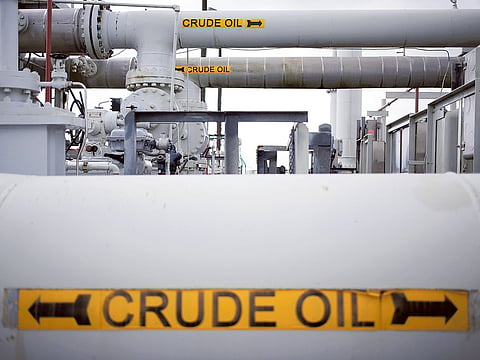Dated Brent crude oil price smashes through $100 a barrel
Dated Brent reflects an oil price that’s more immediate than futures markets

Forget the futures market. The world’s most important oil price just smashed through $100 a barrel with every sign it is going to push higher.
Dated Brent, the price of cargoes bought and sold in the North Sea, reached $100.80 a barrel on Wednesday for the first time since 2014, according to S&P Global Platts, the company that publishes the marker. Price spreads in the futures market are pointing to one the tightest markets ever.
The surge through $100 a barrel for Dated matters because the daily price assessment is at the center of a web of complex oil derivatives and also sets a baseline against which millions of barrels of crude are transacted daily. It also shows that the rally in futures prices - they passed $96 at one point on Wednesday - is in part being driven by what’s happening in the real world.
The oil market globally is roaring higher because of demand that’s exceeding what some organisations - including the International Energy Agency - had been anticipating. That surge in consumption has compounded the fact that nations in the OPEC+ producer alliance are not managing to pump as much crude as they had said they would.
Dated Brent reflects an oil price that’s more immediate than futures markets. Its rally shows how traders are willing to pay up to secure actual barrels for delivery to refineries.
A similar sense of urgency is evident in the forward curve in the futures market. The six-month timespread in Brent - the gap between most immediate prices and those six months later - reached as much as $8.74 a barrel on Wednesday, according to ICE Futures Europe data. That’s the biggest in data going back to 2007.
Sign up for the Daily Briefing
Get the latest news and updates straight to your inbox


